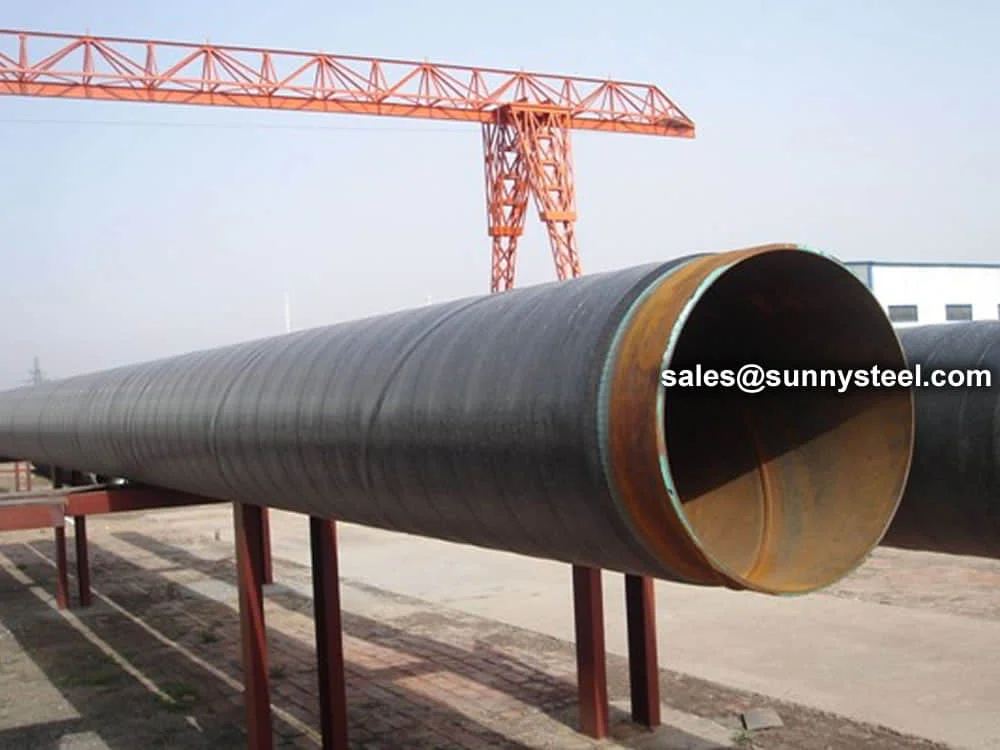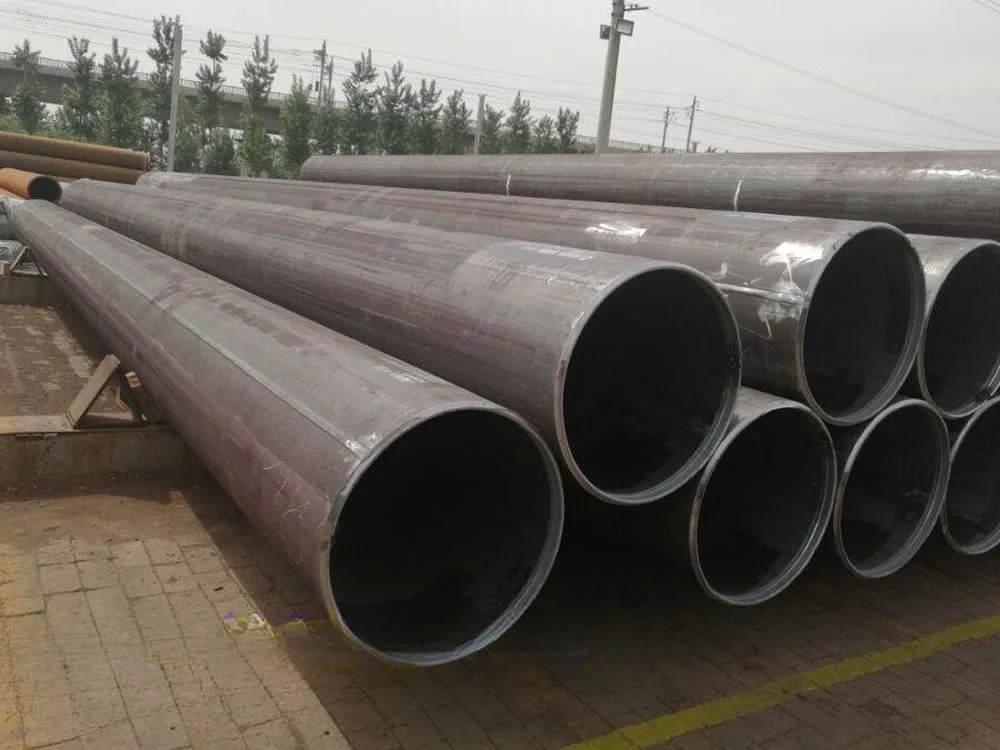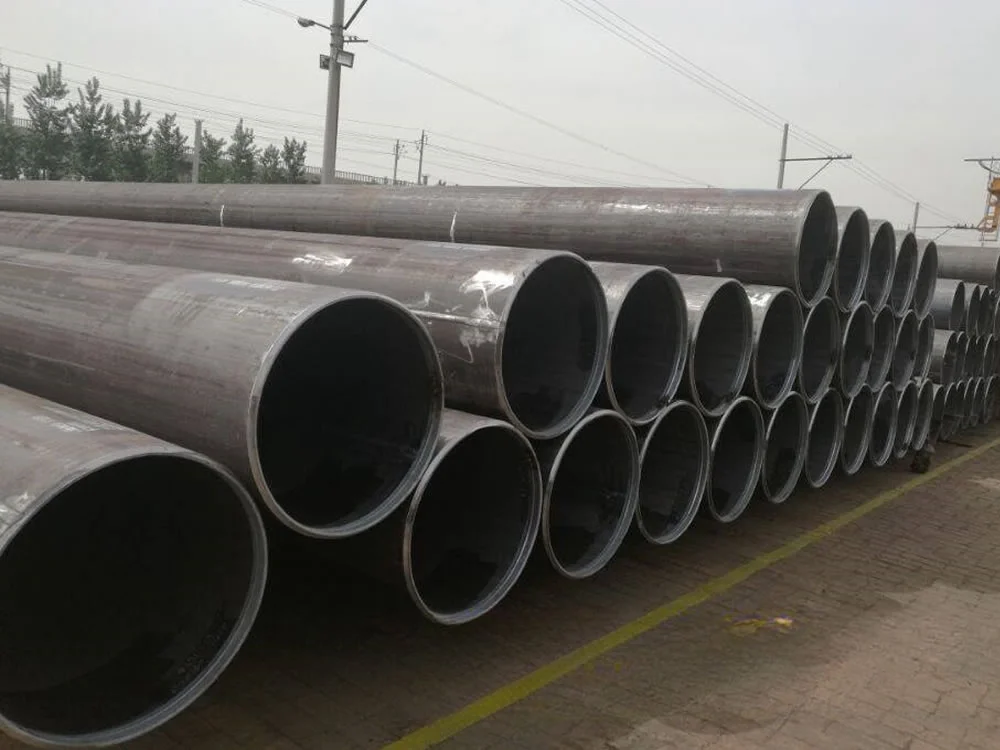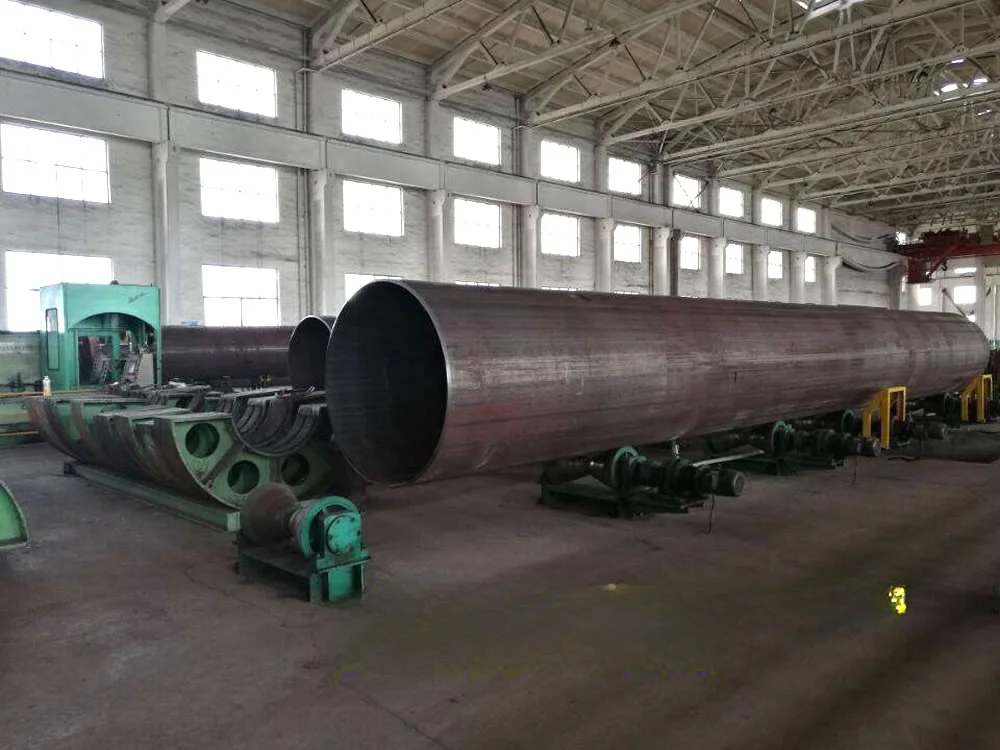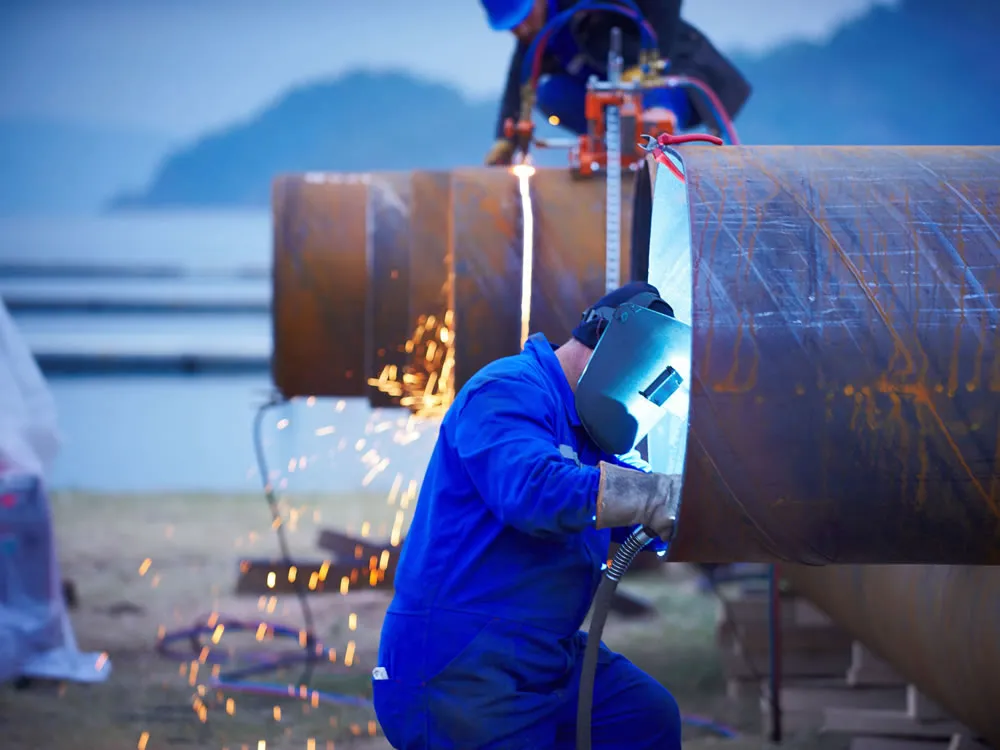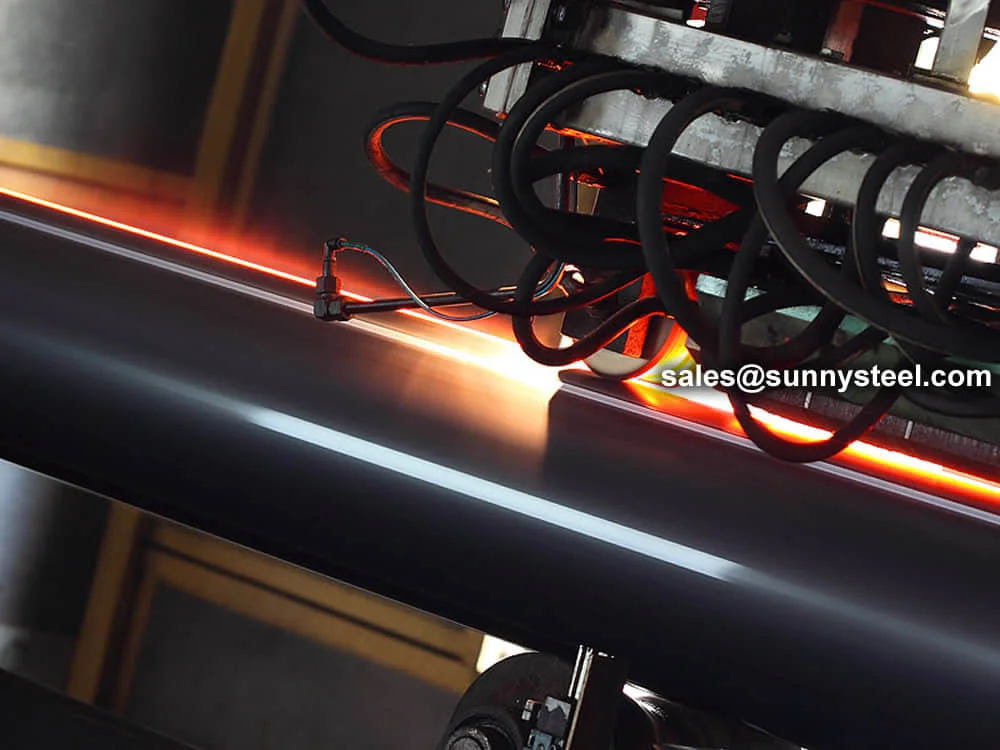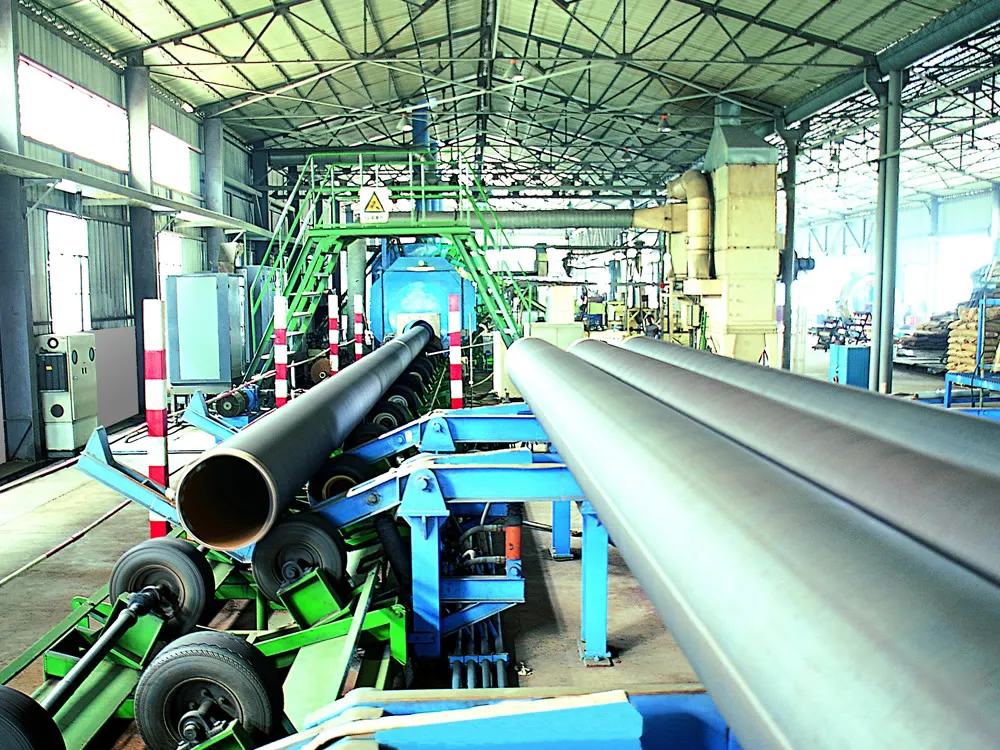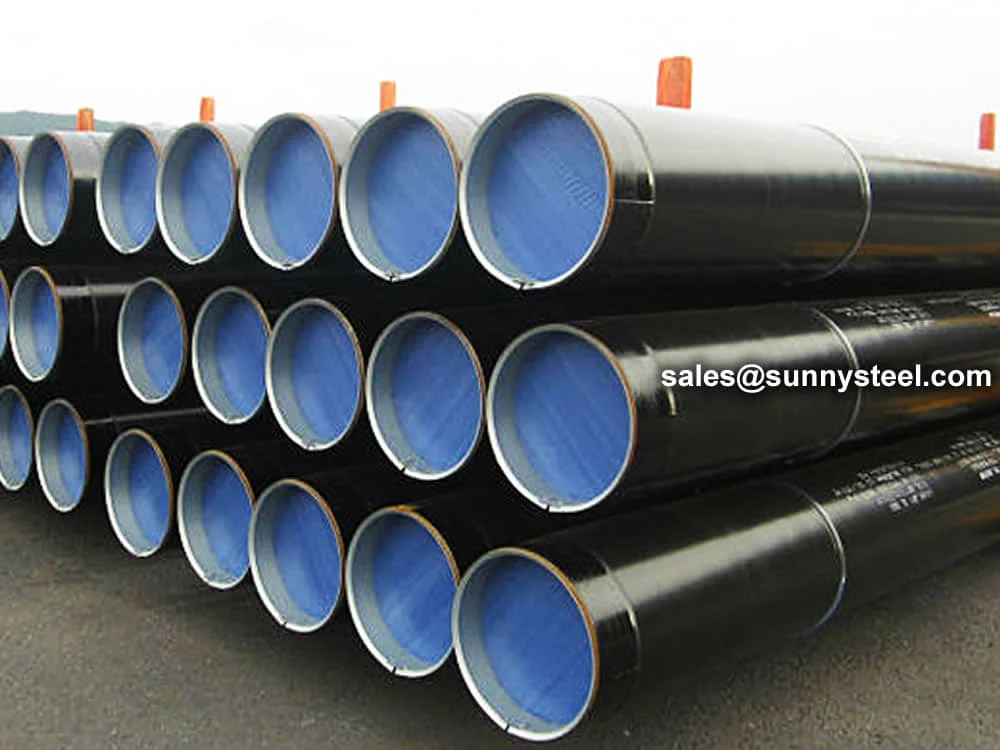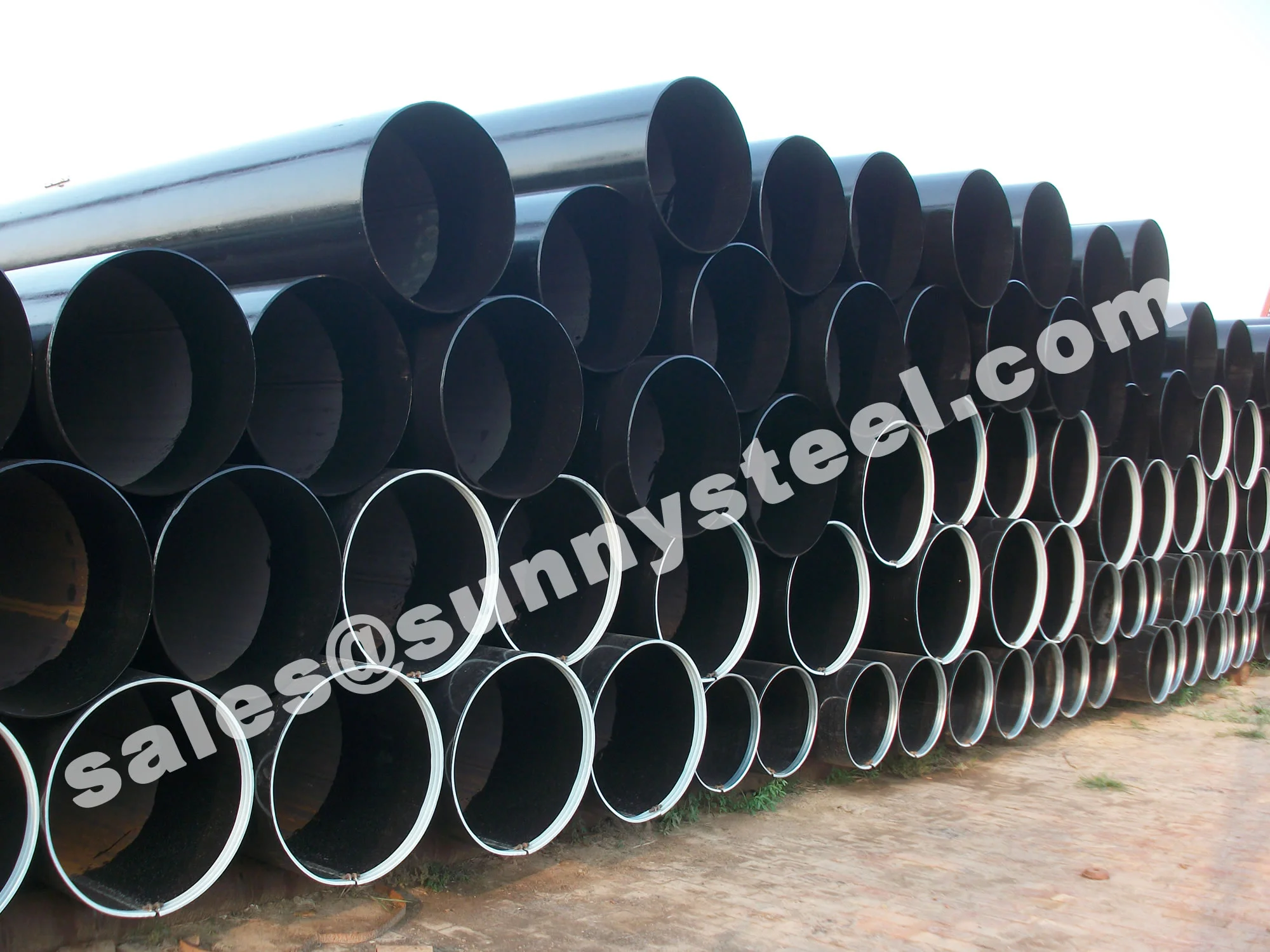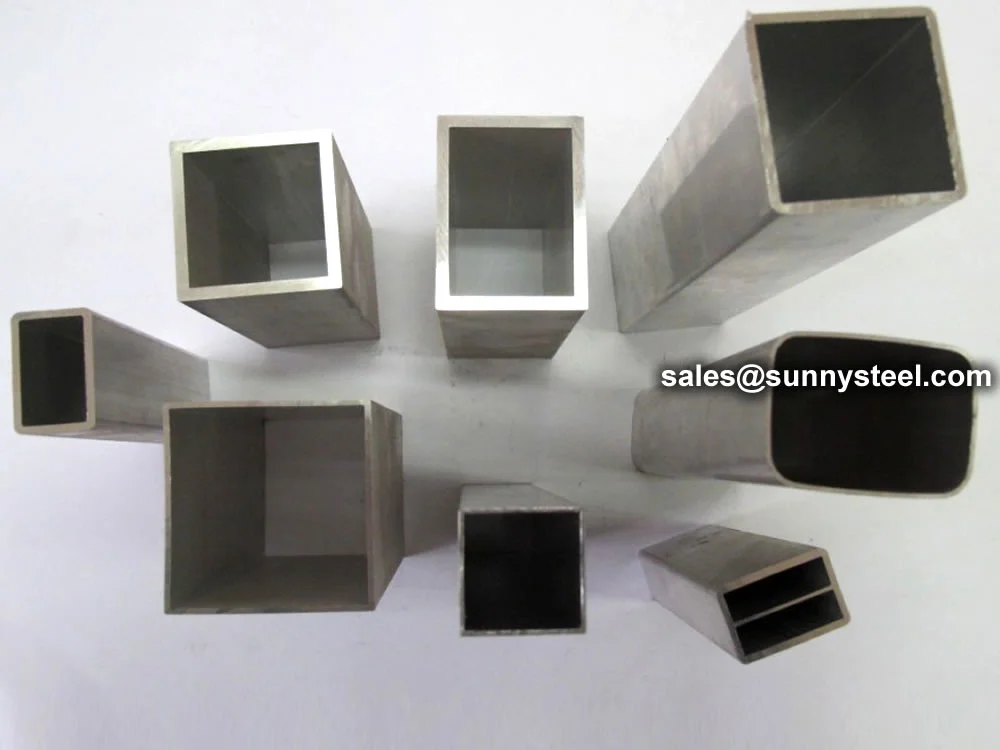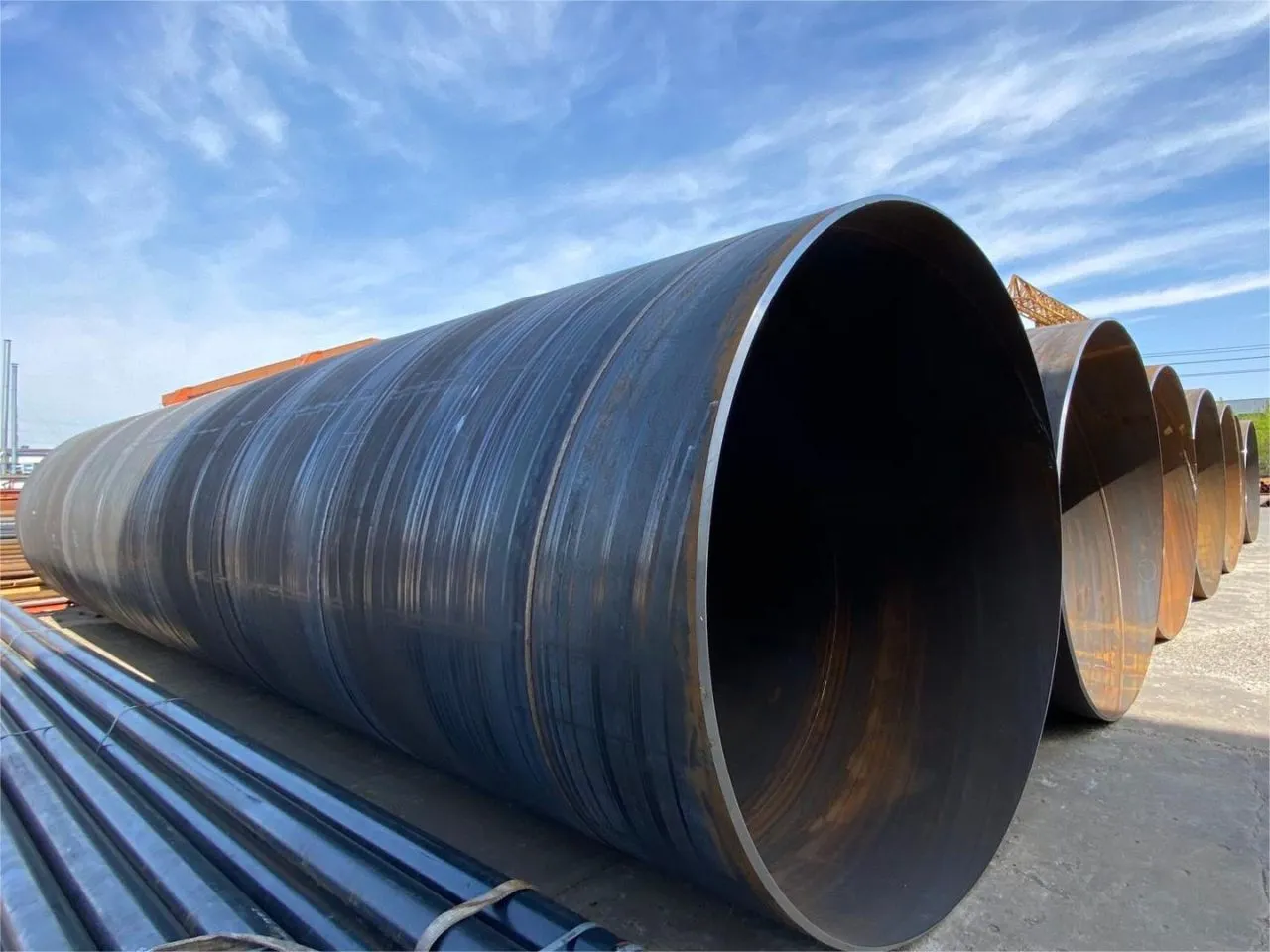DSAW Pipe (Double Submerged Arc Welded Pipe) is a high-quality welded steel pipe
produced using a double-sided submerged arc welding process, ensuring exceptional strength and durability. Available
in Longitudinal Submerged Arc Welded (LSAW) and Spiral Submerged Arc Welded (SSAW) configurations, DSAW
pipes are designed for high-pressure applications in oil and gas pipelines, water transmission, and
structural projects, adhering to standards like API 5L, ASTM A252, and ASME B36.10.
The manufacturing process involves forming steel plates or coils into cylindrical shapes, with V-shaped grooves
prepared on both interior and exterior surfaces for welding. A single pass of submerged arc welding on both sides,
protected by flux, ensures 100% weld penetration, creating a robust and reliable bond. DSAW pipes
are available in diameters from 4 inches to 167 inches (100 mm to 4267 mm) and wall thicknesses from 3/32 inch to 4
inches (2.1 mm to 100 mm), making them suitable for large-diameter and thick-walled applications.
DSAW pipes undergo stringent quality control, including ultrasonic testing, hydrostatic testing,
and non-destructive examinations, to ensure defect-free welds and compliance with industry standards. Protective
coatings such as 3LPE, galvanizing, or Fusion Bonded Epoxy (FBE) enhance corrosion-resistant DSAW
pipe performance in harsh environments like offshore pipelines or chemical processing plants. Available
in lengths up to 155 feet for spiral formats, these pipes are ideal for long-distance pipelines.
Compared to Electric Resistance Welded (ERW) or seamless pipes, DSAW pipes offer superior weld
quality and dimensional accuracy, making them ideal for large-diameter, high-pressure applications such as
load-bearing piles or combination wall piles. With tensile strengths starting at 415 MPa for API 5L Grade B, they
provide excellent mechanical performance. Customizable end finishes (beveled, plain, or threaded) ensure
compatibility with complex piping systems.
DSAW pipes address critical challenges like corrosion, high pressure, and structural stress, making
them a reliable choice for engineers seeking durable industrial piping solutions for oil and gas,
water supply, and construction projects. Their high weld quality and versatility ensure long-term performance in
demanding conditions.
Double submerged arc welded (DSAW) spiral steel pipe is favored in industries such as oil and gas, slurry transportation, and urban construction due to its high-pressure capacity, low resistance, low-temperature resistance, corrosion resistance, and ease of installation and maintenance.
Spiral Double Welding Pipe Process
- Double Submerged Arc Welding: Ensures uniform plate deformation, minimal residual stress, and scratch-free surfaces. Offers flexibility in producing pipes with varying diameters and wall thicknesses, especially for high-grade, thick-walled, large-diameter pipes, meeting diverse user specifications.
- Pre-Welding and Fine Welding: Welding is performed in optimal positions, reducing defects such as misalignment, incomplete penetration, or poor weld quality, ensuring precise control.
- Mechanical Diameter Expansion: Enhances dimensional accuracy and improves stress distribution in the steel pipe, preventing stress corrosion damage and facilitating on-site welded construction.
- 100% Quality Inspection: Comprehensive monitoring and detection throughout the production process ensure the quality of DSAW pipes.
- Automated Production Line: Integrated with a computer data acquisition system for real-time data transmission, centralizing control of production parameters and quality indicators.
Advantages of Double Submerged Arc Welding
Introduced in 1940, double submerged arc welding (DSAW) is a highly efficient welding method distinct from manual welding. It uses a flux system delivered through a funnel to the welding area, protecting the weld with molten flux rather than electrode coating. The continuous wire feed eliminates the need to replace electrodes, ensuring uninterrupted welding.
In DSAW, the arc burns within a cavity formed by the welding wire, base material, and flux, creating stable combustion known as submerged arc welding. Key advantages include:
- Full Automation: Streamlines the welding process for consistency and efficiency.
- Superior Heat Exchange and Protection: Welding under flux provides excellent heat management and high-quality welds.
- High Current Capability: Enables high welding efficiency, ideal for large-scale projects like the West-East Gas Pipeline.
Modern advancements include double-wire and multi-wire DSAW, further enhancing efficiency for large-scale applications.
DSAW Pipe Capabilities
Our technical team provides comprehensive solutions for pipeline projects, tailored to meet system and budgetary requirements. In collaboration with partners, we offer integrated services, including:
- Production of DSAW pipes.
- Internal and external coating applications.
- Double jointing for enhanced structural integrity.
- Transportation logistics for seamless project execution.
Chemical Composition of DSAW Pipes (Typical Grades)
Chemical Composition of API 5L Grade B, ASTM A252 Grade 2, and ASTM A671
| Grade |
C (% max) |
Si (% max) |
Mn (% max) |
P (% max) |
S (% max) |
| API 5L Grade B |
0.28 |
0.45 |
1.20 |
0.03 |
0.03 |
| ASTM A252 Grade 2 |
0.26 |
- |
1.40 |
0.04 |
0.05 |
| ASTM A671 |
0.24 |
0.13-0.45 |
0.98 |
0.035 |
0.035 |
The chemical composition ensures weldability, strength, and corrosion resistance for DSAW pipe in demanding industrial applications.
Mechanical Properties of DSAW Pipes (Typical Grades)
Mechanical Properties of API 5L Grade B, ASTM A252 Grade 2, and ASTM A671
| Grade |
Tensile Strength (MPa min) |
Yield Strength (MPa min) |
Elongation (% min) |
| API 5L Grade B |
415 |
245 |
23 |
| ASTM A252 Grade 2 |
414 |
241 |
25 |
| ASTM A671 |
450 |
240 |
22 |
These properties ensure DSAW pipes deliver robust performance in high-pressure and structural applications.
Comparison with Other Welded Pipes
DSAW Pipes (LSAW and SSAW) offer superior weld quality and large-diameter capabilities compared to other welded pipes like ERW or HFW. Below is a comparison highlighting key differences.
Comparison of DSAW Pipes with ERW and HFW Pipes
| Feature |
DSAW Pipe (LSAW/SSAW) |
ERW Pipe |
HFW Pipe |
| Welding Process |
Double Submerged Arc Welding (inside and outside) |
Electric Resistance Welding |
High-Frequency Welding |
| Diameter Range |
4–167 inches |
1/2–24 inches |
1/2–24 inches |
| Wall Thickness |
2.1–100 mm |
1.5–20 mm |
1.5–20 mm |
| Applications |
Oil/gas pipelines, water transmission, structural piles |
Water, gas, low-pressure systems |
Water, oil, low-pressure systems |
| Weld Quality |
High (100% penetration) |
Moderate |
Moderate |
| Cost |
Higher (complex process) |
Lower |
Lower |
Why Choose DSAW Pipes? Their superior weld quality, large diameter range, and high-pressure resistance make DSAW pipes the preferred choice for critical applications compared to ERW or HFW pipes.
Key Benefits
Superior Weld Quality
Double-sided welding ensures 100% penetration and strength.
Large Diameter Range
Available from 4 to 167 inches for diverse projects.
Corrosion Resistance
Enhanced by 3LPE, FBE, or galvanizing coatings.
High Pressure Resistance
Ideal for oil, gas, and water pipelines.
Dimensional Accuracy
Precise sizes for seamless installation.
Standards Compliance
Meets API 5L, ASTM A252, and ASME B36.10 standards.
